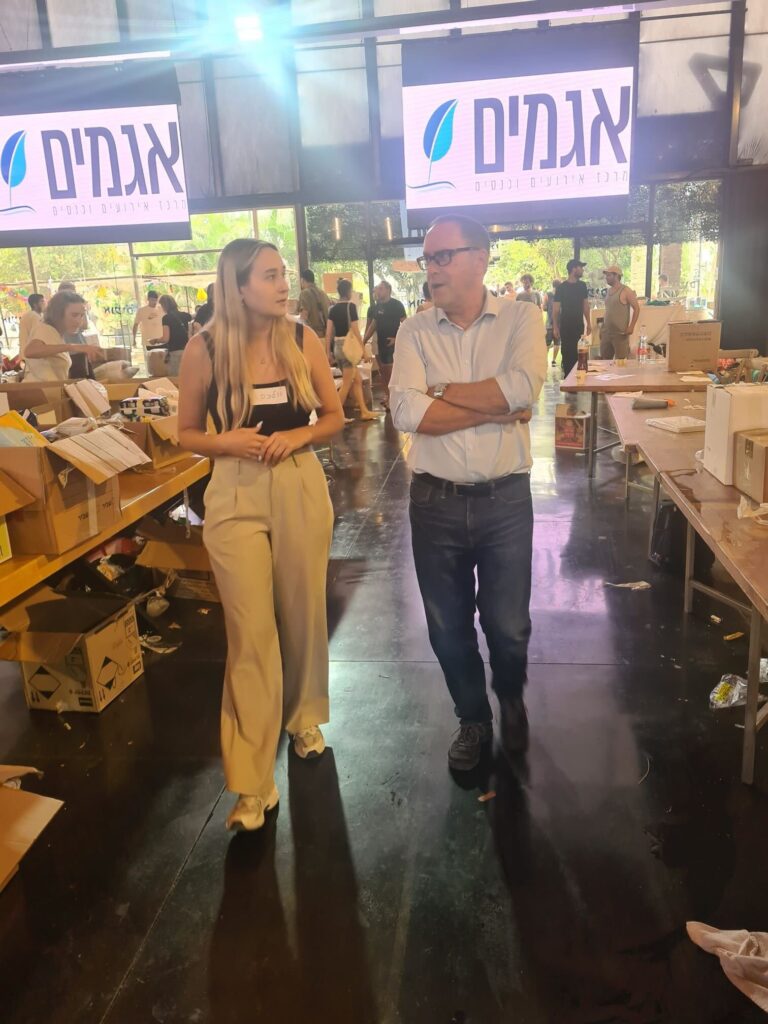
Plant Biodiversity Enhances Ecosystem and Buffers Negative Climate Change Effects in Drylands
Plant Biodiversity Enhances Ecosystem and Buffers Negative Climate Change Effects in Drylands
January 30, 2012
BEER-SHEVA, Israel, January 30, 2012 — An international team of researchers, including Dr. Bertrand Boeken of the Jacob Blaustein Institutes for Desert Research at Ben-Gurion University of the Negev, suggests in a new study that plant biodiversity preservation is crucial to buffer the negative effects of climate change and desertification in drylands.
The study titled “Plant Species Richness and Ecosystem Multi-functionality in Global Drylands”, published in the prestigious journal Science is the outcome of a five-year research effort involving more than 50 researchers from 30 institutions in 15 different countries, including BGU’s Dr. Bertrand Boeken. Dr. Boeken contributed research data from two long-term ecological research sites in the northern Negev.
“Our results suggest that the increase in average annual temperature predicted by climate change models will reduce the ability of dryland ecosystems to perform multiple functions, which are crucial to support life on earth,” says Boeken.
The results of this study indicate that the ability of ecosystems in drylands worldwide to maintain multiple functions, such as carbon storage and buildup of nutrient pools (multi-functionality) is enhanced by the number of perennial plant species, mainly shrubs and dwarf-shrubs, whereas increased average annual temperature reduces this ability.
While small-scale controlled experiments have provided evidence of the positive relationship between biodiversity and multi-functionality over the years, this study is the first in explicitly evaluating such a relationship among real ecosystems at a global scale.
The fieldwork of this study was carried out in 224 dryland ecosystems from all continents except Antarctica, where direct measurements of plant diversity and other biotic and abiotic features of the ecosystem were taken. Researchers assessed more than 2,600 soil samples for 14 ecosystem functions related to carbon, nitrogen and phosphorus cycling and storage. The functions measured deliver some of the fundamental supporting and regulating ecosystem services (e.g. soil fertility and climate regulation), and are also used to identify the onset of desertification processes.
Drylands constitute some of the largest terrestrial biomes, collectively covering 41 percent of the planet’s land surface and supporting over 38 percent of the global human population. They are of paramount importance for biodiversity, host many endemic plant and animal species, and include about 20 percent of the major centers of global plant diversity and over 30 percent of the designated endemic bird areas. However, dryland ecosystems are also highly vulnerable to global environmental change and desertification.
“Plant biodiversity enhances multi-functionality ability, therefore, maintaining and restoring it can contribute to mitigating the negative consequences of global warming and to promoting the resistance of natural ecosystems to desertification,” says Boeken.
ABOUT AMERICANS FOR BEN-GURION UNIVERSITY
By supporting a world-class academic institution that not only nurtures the Negev, but also shares its expertise locally and globally, Americans for Ben-Gurion University engages a community of Americans who are committed to improving the world. David Ben-Gurion envisioned that Israel’s future would be forged in the Negev. The cutting-edge research carried out at Ben-Gurion University drives that vision by sustaining a desert Silicon Valley, with the “Stanford of the Negev” at its center. The Americans for Ben-Gurion University movement supports a 21st century unifying vision for Israel by rallying around BGU’s remarkable work and role as an apolitical beacon of light in the Negev desert.
About Ben-Gurion University of the Negev
Ben-Gurion University of the Negev embraces the endless potential we have as individuals and as a commonality to adapt and to thrive in changing environments. Inspired by our location in the desert, we aim to discover, to create, and to develop solutions to dynamic challenges, to pose questions that have yet to be asked, and to push beyond the boundaries of the commonly accepted and possible.
We are proud to be a central force for inclusion, diversity and innovation in Israel, and we strive to extend the Negev’s potential and our entrepreneurial spirit throughout the world. For example, the multi-disciplinary School for Sustainability and Climate Change at BGU leverages over 50 years of expertise on living and thriving in the desert into scalable solutions for people everywhere.
BGU at a glance:
20,000 students | 800 senior faculty | 3 campuses | 6 faculties: humanities & social sciences, health sciences, engineering sciences, natural sciences, business & management, and desert research.
For all press inquiries, please contact:
James Fattal, J Cubed Communications
516.289.1496



